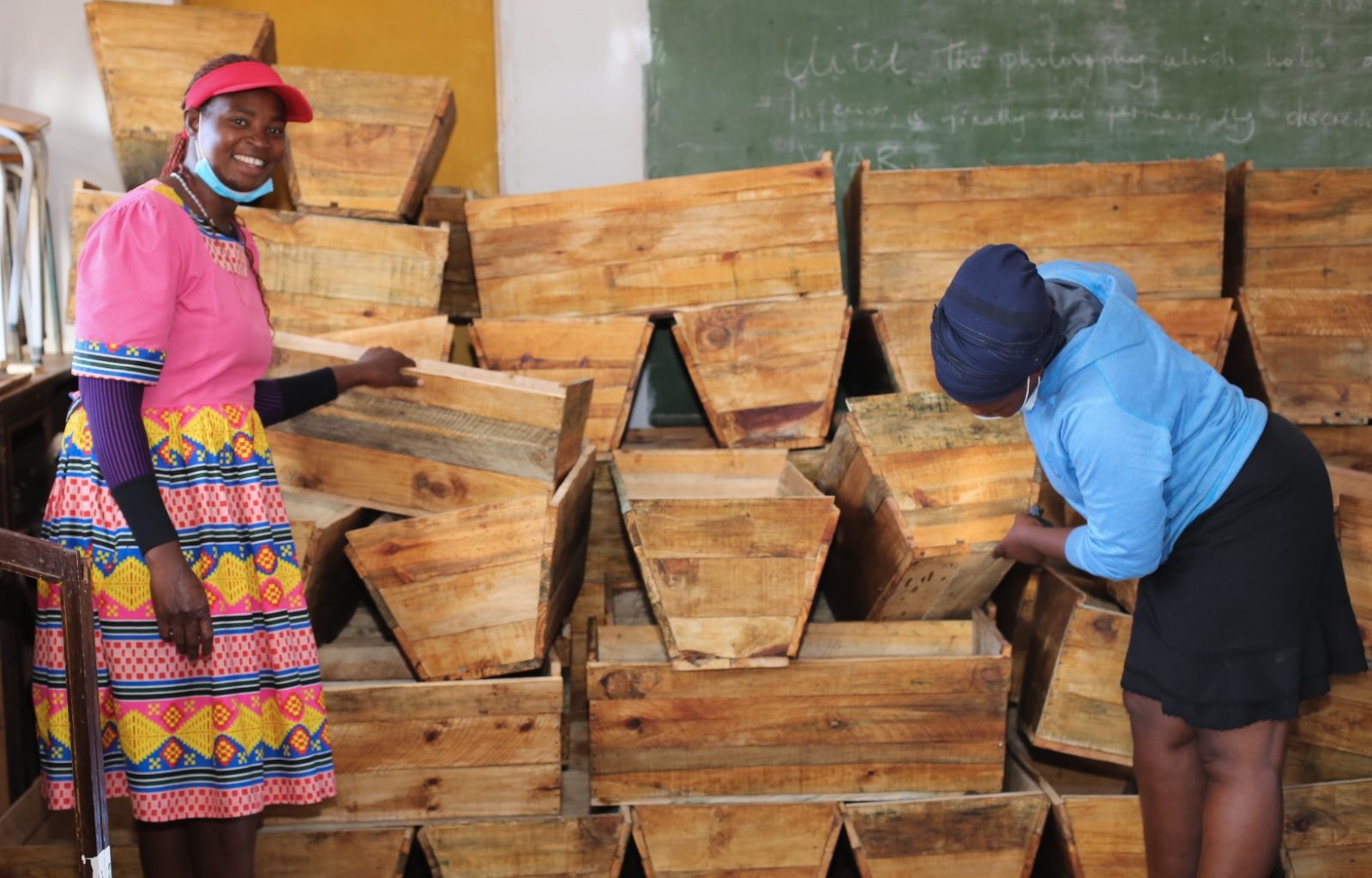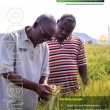
Maricho Media (MM) in conversation with Patrice Talla (PT), FAO Representative in Zimbabwe on one of FAO Projects – The Green Jobs for Rural Youth Employment
MM – Could you kindly describe the bee farmer field schools implemented by FAO and how they provide new skills and job opportunities for rural youth?
PT – Farmer field schools are participatory approaches towards strengthening community capacity to increase agricultural production and improve livelihoods in a way that is adapted to local contexts.
In the Bee Farmer Field School (BFFS), participants are focused on productive apiculture activities in an environment where experiences and expertise are exchanged and youth learn by doing.
Participants are provided with different training modules and tools needed to analyse their practices and identify solutions to their problems.
In this context, BFFS provide rural youth with technical, business and environmental related skills along with sustainable support networks to start or continue their respective or group employment activities.
MM – How does the beekeeping industry contribute to addressing climate change and biodiversity loss, and how do the field schools aim to promote sustainable practices in this industry?
PT – Beekeeping holds a unique position as a green industry that remarkably contributes to tackling climate change and bolstering biodiversity.
Bees facilitate pollination, essential for plant and tree growth, thus indirectly supporting carbon sequestration to offset climate change impacts.
Moreover, their role as pollinators enhances biodiversity, crucial for maintaining resilient ecosystems.
The youth participants under the Green Jobs for Rural Youth Employment receive soft skills training and attend Bee Farmer Field Schools to gain skills in apiculture.
The apiaries serve as classrooms, where the youth gain practical and theoretical knowledge of apiculture and how to market and sell bee-derived products.
They then receive a monthly wage to work in the apiaries until the business begins making a profit. This hands-on learning experience is leading to the production of organic honey, which is sold in the local and national markets.
Furthermore, apiculture is often integrated with other complementary green businesses, such as organic horticulture, vermicompost production or tree nursery production.
MM – What specific skills and knowledge do the field schools provide to rural youth, and how do these skills translate into green job opportunities?
PT – Technical skills include hive construction, site maintenance, hive management, including biodiversity needs, harvest, processing of bee-derived products and packaging.
Business skills are also transmitted including knowledge on markets, marketing, sale and organization of producer associations.
MM – How are the field schools structured, and what is the duration of the training program?
PT – The BFFS are structured by first identifying a location(s) for the establishment of an apiary.
Selection of a site is important as land tenure rights should correspond to the long-term need of the forum and the participation of the selected farmers.
Moreover, the site also needs to be selected to correspond to the biodiversity and water-related needs.
The Field Schools are structured to involve an array of participants, trainers and local mentors.
Trainers, often provide specific training programmes while local mentors are available to exchange expertise and support the sustainability of practices, including business opportunities.
The duration can be several months depending on the context of the programme.
MM – How are the participants selected for the field schools, and what criteria are used in the selection process?
PT – It depends on the context. In the districts mentioned below, youth participants have been selected within the context of the FAO Green Jobs for Rural Youth Employment project.
Nevertheless, FAO runs various forms of Farm Field School in collaboration with the Ministry of Lands, Agriculture, Fisheries, Water and Rural Development and its various extension programmes.
MM – What are some of the challenges faced by rural youth in accessing green job opportunities, and how do the field schools address these challenges?
PT – There is a strong demand for decent jobs in rural areas. When rural youth are skilled on environmental challenges and empowered to identify and problem solve on some of the environmental and climate related issues in their respective communities, there is a strong motivation to access green jobs.
Nevertheless, rural youth often face challenges regarding limited knowledge, information and education, access to land, access to financial services, access to markets and engagement in policy dialogues.
Farmer Field Schools (FFS) address these challenges by not only providing knowledge and skills to participants involved but creating a participatory space where youth feel empowered to problem solve and develop transferable skills that can be used in various contexts.
Moreover, FFS create sustainable networks that can be used overtime for exchange of information and support amongst participants and their mentors.
When farmers are organized they are more likely to access markets, financial services and address land tenure rights.
MM – Can you speak to any success stories or notable achievements that have been realized through the bee farmer field schools?
PT – Certainly, the bee farmer field schools have seen significant achievements and success stories.
The introduction of apiculture activities under the Wage Employment Programme has led to the creation of numerous green job opportunities for rural youth.
These opportunities don’t just provide employment but also empower these young individuals with skills, contributing to the supply of organic honey and additional agricultural products to local and national markets.
Beyond this, the field schools have sparked a greater consciousness of sustainable ecosystem services among the youth.
We are witnessing an increased enthusiasm among them advocating for green practices in their local communities, and they are playing a pivotal role in transferring this knowledge to their peers.
These apiculture activities are making a notable difference not only in the lives of these youth but also in their communities and the broader environment.
Their passion and eagerness to learn, improve, and do more for their environment have been incredibly inspiring.
They’re not just producing honey; they’re becoming change agents for a sustainable future, which we view as a remarkable achievement in its own right.
MM – Which areas is this being implemented in?
PT – Chegutu• Chimanimani• Kariba• Kwekwe• Marondera in• Mawzowe
For more details:
https://www.fao.org/rural-employment/resources/detail/en/c/1629487/











